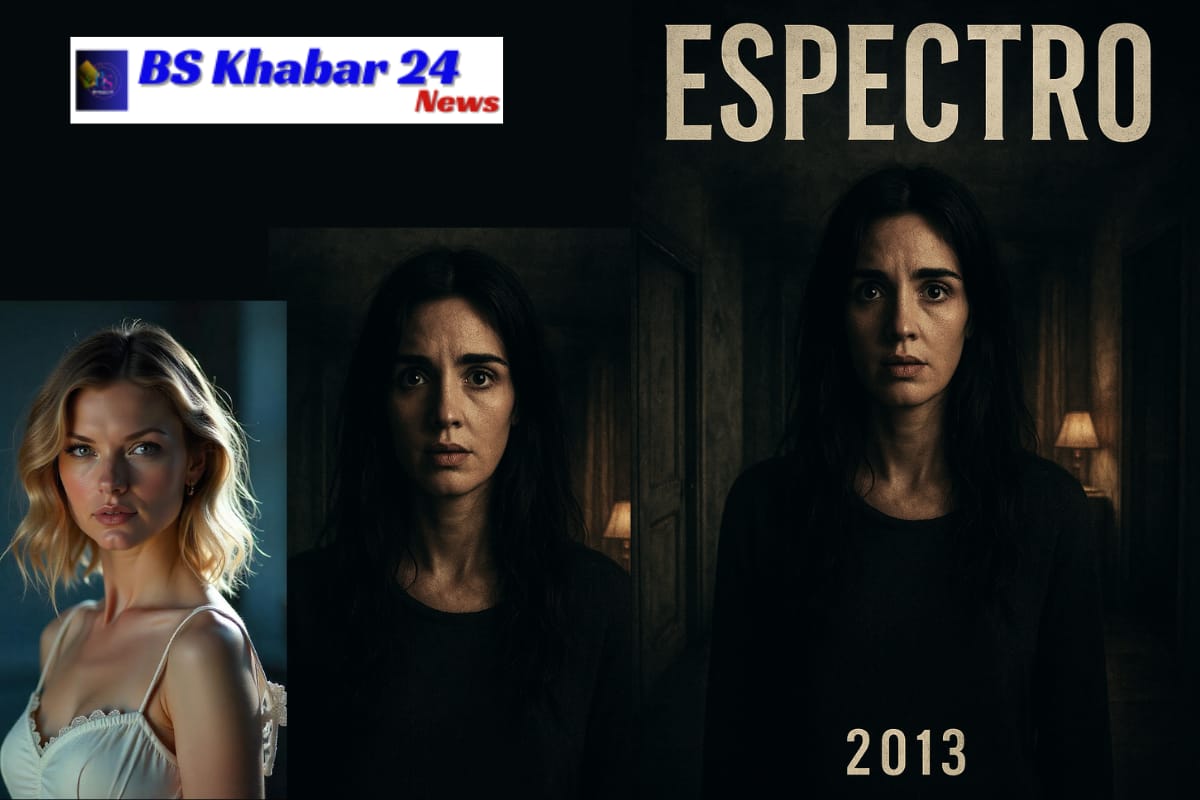Espectro 2013: A Dark Tale of Trauma, Fear, and Redemption
Espectro 2013: Marta’s Haunting Journey Through Trauma, Fear, and the Supernatural”
Mexican cinema has long been known for producing bold, thought-provoking stories that blur the lines between reality, psychological turmoil, and the supernatural. One film that stands out in this category is *Espectro* (2013), directed by Alfonso Pineda Ulloa. This haunting thriller combines psychological horror with human fragility, taking audiences deep into the mind of a woman struggling with trauma, isolation, and the terrifying possibility of her past catching up with her.
The Story of Marta
At the heart of “Espectro” is Marta, portrayed by the talented Spanish actress Paz Vega. Marta is introduced as a once-recognized and successful psychic, someone who had made a name for herself with her extraordinary gift. But after a brutal and dramatic experience, her life takes a sharp turn into darkness. She loses faith in her own abilities, becomes plagued by “agoraphobia” (the fear of leaving safe spaces), and is overwhelmed by the trauma inflicted by her rapist, Mario.
Marta’s blindness to Mario’s true demonic side leaves her in a fragile state of paranoia. Even after she is released from the asylum where she sought refuge, she cannot shake the fear that Mario will one day return to haunt her. Hoping to rebuild her life, she moves into the apartment of Monica’s uncle, a seemingly safe haven. But her sense of security is short-lived.
Haunted Inside and Out
Life inside the apartment quickly becomes a nightmare of its own. Marta’s neighbors turn out to be far from ordinary, bringing a sense of chaos and instability into her already fragile world. And as if dealing with difficult people weren’t enough, Marta begins to experience something far more sinister—a “mysterious presence” that begins to haunt her day and night. This “thing” makes her life unbearable, pushing her to the edge of reality and sanity.
For Marta, survival is no longer just about facing her inner fears but about confronting the very real possibility of supernatural torment. She must dig deep within herself, fight against all these overwhelming obstacles, and reclaim her psychic gift before Mario can track her down once again.
A Blend of Horror and Psychological Drama
Espectro is not your typical horror film filled with jump scares and predictable plotlines. Instead, it thrives on atmosphere, slow-burning tension, and the fragile state of its protagonist’s mind. The story weaves together real-world trauma with supernatural elements, leaving the audience constantly questioning what is real and what might be a manifestation of Marta’s broken psyche.
Director “Alfonso Pineda Ulloa”crafts a world where fear lingers in every shadow and paranoia creeps into every corner of Marta’s life. The cinematography enhances this unsettling mood, making the apartment setting feel both claustrophobic and threatening.
The Cast
The film features a strong cast led by “Paz Vega”, who delivers a raw and emotional performance as Marta. Vega’s portrayal captures both the vulnerability and strength of a woman fighting to take back control of her life.
She is joined by “Johanna Murillo”, who adds depth to the supporting characters, and **Alfonso Herrera**, whose performance contributes to the film’s haunting atmosphere. Together, the cast brings to life a chilling narrative that keeps viewers engaged from start to finish.
The Writers Behind the Story
The screenplay is the result of a collaboration between Esteban Orozco, Felipe Orozco, and Alfonso Pineda Ulloa. Their writing carefully balances the psychological elements of trauma with the eerie presence of supernatural horror. Instead of relying solely on scares, the script delves into the complexities of Marta’s past, making the film more than just a ghost story—it becomes a journey of survival and resilience.
Why Espectro Stands Out
While many horror films lean heavily on special effects and overused tropes, *Espectro* succeeds by centering its story on a character whose struggles feel painfully real. Marta’s trauma, her fear of being haunted by her attacker, and her battle with agoraphobia make the film not just a horror experience but also a poignant commentary on the lingering effects of violence and abuse.
At the same time, the supernatural elements elevate the film, ensuring that it resonates with fans of psychological thrillers and horror alike.
Final Thoughts
Espectro (2013) is a chilling and emotional journey that pushes viewers to confront the dark corners of the human mind. It is a story about trauma, survival, and the fight to reclaim one’s identity in the face of overwhelming fear. With Alfonso Pineda Ulloa’s direction, a compelling script, and a powerhouse performance by Paz Vega, the film remains a memorable entry in Latin American psychological horror.
For those who enjoy horror films with depth and atmosphere rather than cheap thrills, *Espectro* is a must-watch. It reminds us that sometimes the scariest battles are the ones fought within—and that redemption often comes at the highest cost.






